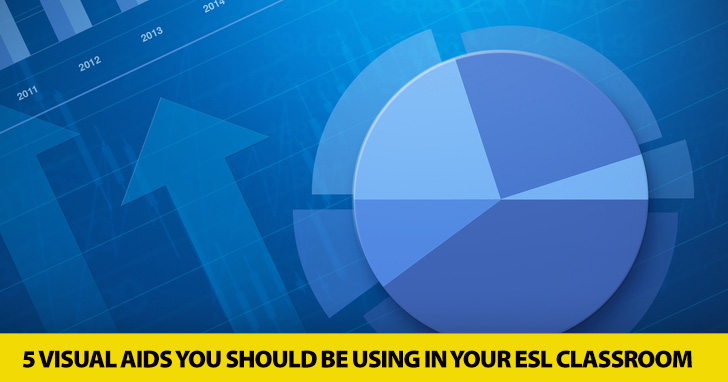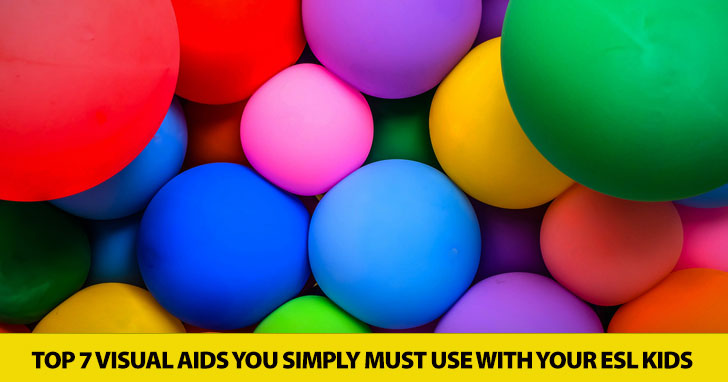Keep Their Eye on the Prize: 5 Visual Aids You Should Be Using in Your ESL Classroom


In the world of education there is much to consider regarding how we, as teachers, can improve and enhance how our students learn. We've already discussed that all people, young or old, have different ways in which they learn best. There are many theories about this, too. Taking into account multiple intelligences or learning styles allows our students to benefit greatly from a variety of different materials and tools that help them learn more comfortably and efficiently. Among these many tools we can find visual aids. Though we use all our senses to learn, it appears that seeing is the sense where most of our learning comes from. That's why the most effective way to clarify and bring understanding to what you are teaching is to actually show the students. Keep in mind that kids learn to read and write at the age of 5 or 6 so during the first years of a child's life visual aids should contain images with words or not. OK, so there are a lot of different types of visual aids you can use in your ESL classroom many of which can be used for adults as well as kids. Let's take a look.
Using objects to show and demonstrate during the lesson really gets students involved. You can use any object, too. For adult beginners, using props is a nifty way to learn the names of the objects, their colors and also to practice describing them. For children there are many more options. We can use puppets, toys, puzzles and costumes. Kids learn better by manipulating objects. These will make a lesson much more enjoyable to them.
Can you imagine a classroom without educational posters ? I simply can't. They are way too awesome. Also, if you choose the right ones, they can go a long way towards providing the support you need in your lessons. They can help you save time since you will just be able to point to something on a poster and avoid having to write everything out. Though they are rather simple, they are an amazing way to transmit information. You can use them for charts, graphs, tables, to make lists, etc. For kids ESL classrooms, you have your classic options such as ABC s/numbers, animals, parts of the body and so on. Also, posters are an amazing way to show kids how you expect them to behave. Having posters with classroom rules and/or one that illustrates appropriate behavior is a definite must.
Adults can benefit from posters, too. Many colleagues have been known to use posters that include things like: common rules of spelling, how to pronounce difficult words, typical language functions such as greetings and ways of saying good-bye and, how to express an opinion or interrupt someone.
They are very useful since they can be used while presenting language and are fabulous for games and activities. In my opinion, they are the next best thing to having the actual objects, which is not always an option. Flashcards are also amazing tangibles to use with students. Students can share and exchange them, too.
We all use pictures with our ESL students. They are ideal for beginners and kids because you can simply show them what you want them to learn thus avoiding lengthy and maybe complicated explanations. We can use them to demonstrate things as well. Photographs and illustrations are great tools to explain a topic. Also, they are the best alternative to use when the actual object can't be used.
Videos are a great visual aid and attention grabber. You can work with whole pieces, long excerpts or short clips. Teens tend to love video clips so I highly recommend you use them with your students. Many teacher are inclined to associate videos with movies but the fact is there are a great deal of options you can choose from. The Internet is an endless source of material of all sorts.
Presentations can be an extremely useful visual aid, especially for adult business students. It is a great way for them to get used to understanding content through a presentation. They are a great way to keep the audience engaged and keep the speaker on track. Unfortunately they usually take a lot of time and energy to put together.
Like flashcards, handouts are great tangibles to use in class. They can also display all types of information like charts, graphs, pictures, or illustrations. The great thing about a handout is that a person can keep it. This can help students remember what was practiced in class. Something to take into account is that students who receive the handout might be tempted to read what is on the paper, which might take the attention away from you. Since they tend to be distracting they might keep your students from listening to what you are saying. Just make sure to give your students the hand out right after you are done talking.